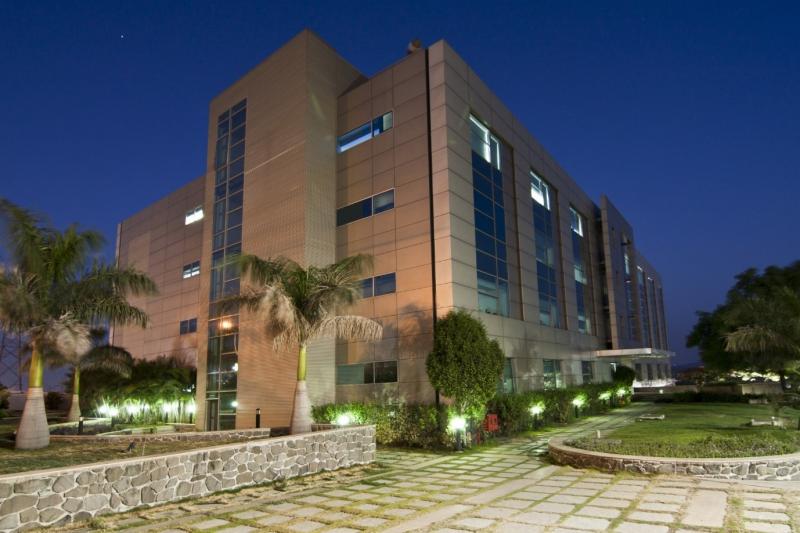What is a Real Estate Developer? Your Guide to Real Estate Development
The field of real estate development can be highly rewarding. But what is a real estate developer and how do you become one? Read on to learn more.

Do you have experience in real estate, construction, or urban planning? Are you interested in designing and building properties?
You may be qualified for an exciting new career in real estate development! This challenging field can provide you with a steady income, tax benefits, and long-term financial security.
What is a real estate developer, and how can you begin your journey on this exciting career path?
Let's take a look.
What is a Real Estate Developer?
Real estate developers are visionaries. They take a piece of land that has not been developed yet and turn it into something where people can live, work, and shop.
Real estate developers oversee many aspects of the projects they start. They need, first and foremost, to secure the financing for the project they intend to complete.
Real estate agents will then put together a team responsible for making plans and getting the space professionally constructed. They will need to work with planners, architects, and builders. Real estate developers may also secure permits, find buyers or tenants, or manage the property.
The daily duties of real estate developers may include scouting out the land for projects, negotiating deals, or attending public hearings to get approvals. Once the project has finally begun, you may find them on site a lot, checking out the progress of the buildings.
What Are the Benefits of Becoming a Real Estate Developer?
Real estate agents take a big risk when they invest in a real estate project, and they are hoping for a big reward. Real estate developers can make millions of dollars on the projects they start.
If professionals develop commercial spaces such or residential areas with rental properties, they can expect to always have a steady source of income in the form of rent. If the property appreciates, your income will increase. It's important, however, to invest wisely, as there's no guarantee that housing values will continue to rise over time.
Investors can also get tax benefits from owning rental properties. Rental income, for example, isn't subject to self-employment tax. You can also claim tax deductions for things like maintenance, work-related travel expenses, and property depreciation.
The process of taking a new stage property and turning it into something people can live, work, and learn in can be quite exciting. Real estate development is very rewarding for those with the right skills and experience. They enjoy the creativity and autonomy of making their own decisions and having control over their own failures and successes.
How Do I Become a Real Estate Developer?
Many states do not require you to have a specific degree or certificate in order to become a real estate developer. Having a degree in a related field, however, can greatly increase your credibility.
Popular fields of study for those interested in real estate development include finance, urban planning, or civil engineering. No matter which field they started in, many developers also have their real estate license.
More common in the field of real estate development, however, is an experience in a real-estate related field. You may, for example, have worked for many years as a commercial or residential real estate agent. Or you may be experienced with construction or finance.
Knowledge in buy-and-sell dynamics can really help you as a real estate developer. Many people start as brokers and move on to help sponsors raise equities for deals. This can teach you about contracts and give you great connections.
It's important to keep developing positive relationships with real estate agents, attorneys, and others who can help you with any projects you may take on. Continue networking so you have other professionals to reach out to when your ventures move on to the next level!
How Do I Start a Development Project?
Your past experience in a related field can help to give you an idea of the types of real estate projects you'd like to specialize in. You may want to build apartments or shopping centers.
Keep your eye out for unique opportunities. Being a developer means being able to find ideal locations for new tenants or businesses that will grow and flourish in the future.
Capital is required for your venture. If you aren't independently wealthy, you'll need to find individual investors or take out a business loan. Be prepared to provide detailed information about your company's finances.
You'll need to create a budget for our project first before you ask others to invest in your idea. It will be important for them to know that your project is financially feasible before they partner with you.
You may need to meet with local government officials before you get started. You'll need to make a case for the importance of the project and how it could benefit the community.
Your connections will come in handy when it comes to the next step, which is putting together a team of professionals who can make your dream become a reality. Lawyers, architects, and many types of construction professionals will need to pitch in to make sure the job gets done right.
You'll need to oversee your project and make sure deadlines are being met. It's also the job of the developer to get the word out into the community. Let folks know why they should be buying or renting in your space, and how pleased they will be with their investment!
Get Planning
What is a real estate developer? A development professional wears many hats, including borrowing, investing, and networking. If you have experience with real estate, finance, or construction, you could be on your way to a very lucrative future!
For more great real estate advice, read our blog today.
More to Read:
Previous Posts:











